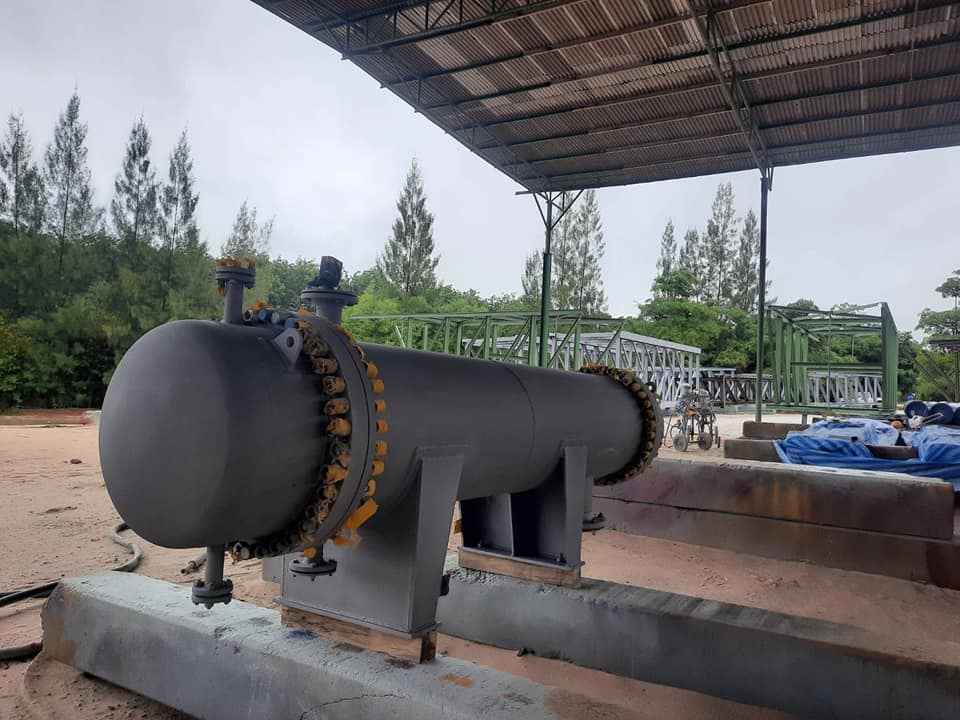Material of Construction (MOC) of Shell and Tube Heat Exchanger
Shell and Tube Heat Exchanger (STHE) MOC depends on factors like:
- Fluid compatibility (corrosiveness, toxicity)
- Temperature & pressure requirements
- Cost & durability considerations
Common Materials Used in STHE Components
1. Shell Material
- Carbon Steel (CS) – Low cost, good strength (e.g., ASTM A516 Gr.70 for moderate conditions).
- Stainless Steel (SS 304, SS 316) – Better corrosion resistance (for acidic/chloride environments).
- Duplex Stainless Steel (2205, 2507) – Higher strength & chloride resistance (e.g., seawater cooling).
Nickel Alloys (Inconel 625, Hastelloy C276) – Extreme corrosion/heat resistance (chemical processing
- Titanium – Excellent for seawater, chlorides, and aggressive acids (desalination plants).
- Clad Materials – Carbon steel lined with corrosion-resistant alloys (cost-effective for high-pressure services).
2. Tube Material
- Stainless Steel (SS 304, 316, 316L) – Most common for general corrosive fluids.
- Copper & Copper Alloys (Admiralty Brass, Cupronickel 90/10, 70/30) – Good for freshwater/condenser applications.
- Titanium – Best for seawater, chlorides, and highly corrosive media.
- Nickel Alloys (Incoloy 825, Monel 400) – Resistant to acids (e.g., sulfuric, hydrochloric).
- Carbon Steel – Used for non-corrosive, high-pressure steam/oil services.
3. Tube Sheet Material
- Typically, same as tubes to avoid galvanic corrosion.
- Carbon Steel with Cladding (SS, Titanium overlay) for cost savings.
4. Baffles & Supports
- Usually carbon steel (if fluid is non-corrosive).
- Stainless steel for corrosive environments.
5. Gaskets & Seals
- Graphite (high temp)
- PTFE (Teflon) (chemical resistance)
- Spiral Wound (SS + Graphite) for high-pressure services.
Selection Criteria
- Corrosion Resistance → SS, Titanium, Nickel alloys.
- High Pressure/Temperature → Carbon steel (with protective lining if needed).
- Cost-Effectiveness → CS for non-corrosive, SS for moderate corrosion.
Industry-Specific Examples
- Oil & Gas: Carbon steel (shell) + SS/carbon steel (tubes).
- Chemical Plants: Hastelloy/SS for aggressive acids.
- Power Plants: CS tubes for steam, titanium for condenser cooling.
- Desalination: Titanium tubes (seawater resistance).
